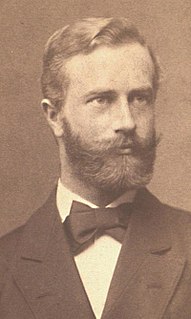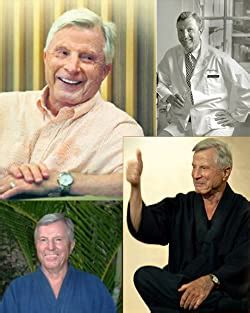A Quote by Joshua Reynolds
Taste depends upon those finer emotions which make the organization of the soul.
Related Quotes
The true man of science will know nature better by his finer organization; he will smell, taste, see, hear, feel, better than other men. His will be a deeper and finer experience. We do not learn by inference and deduction and the application of mathematics to philosophy, but by direct intercourse and sympathy. It is with science as with ethics,--we cannot know truth by contrivance and method; the Baconian is as false as any other, and with all the helps of machinery and the arts, the most scientific will still be the healthiest and friendliest man, and possess a more perfect Indian wisdom.
In any bureaucratic organization there will be two kinds of people: those who work to further the actual goals of the organization, and those who work for the organization itself. Examples in education would be teachers who work and sacrifice to teach children, vs. union representative who work to protect any teacher including the most incompetent. The Iron Law states that in all cases, the second type of person will always gain control of the organization, and will always write the rules under which the organization functions.
Judges of elegance and taste consider themselves as benefactors to the human race, whilst they are really only the interrupters of their pleasure ... There is no taste which deserves the epithet good, unless it be the taste for such employments which, to the pleasure actually produced by them, conjoin some contingent or future utility: there is no taste which deserves to be characterized as bad, unless it be a taste for some occupation which has mischievous tendency.
A man's usefulness depends on his living up to his ideals insofar as he can. It is hard to fail but it is worse never to have tried to succeed. All daring and courage, all iron endurance of misfortune, make for a finer, nobler type of manhood. Only those are fit to live who do not fear to die; and none are fit to die who have shrunk from the joy of life and the duty of life.
"Transcending the ego" thus actually means to transcend but include the ego in a deeper and higher embrace, first in the soul or deeper psychic, then with the Witness or primordial Self, then with each previous stage taken up, enfolded, included, and embraced in the radiance of One Taste. And that means we do not "get rid" of the small ego, but rahter, we inhabit it fully, live it with verve, use it as the necessary vehicle through which higher truths are communicated. Soul and Spirit include body, emotions, and mind; they do not erase them.
It is not the Soviet Union or indeed any other big Powers who need the United Nations for their protection. It is all the others. In this sense, the Organization is first of all their Organization and I deeply believe in the wisdom with which they will be able to use it and guide it. I shall remain in my post during the term of my office as a servant of the Organization in the interests of all those other nations, as long as they wish me to do so.
The feminization of America has made emotions sacrosanct while condemning as cold and unfeeling rigorous concepts such as duty andhonor. Propelled by incessant hosannas to woman's "finer" this and "softer" that, we make emotional decisions instead of ethical ones and then congratulate ourselves for having "heart.








































